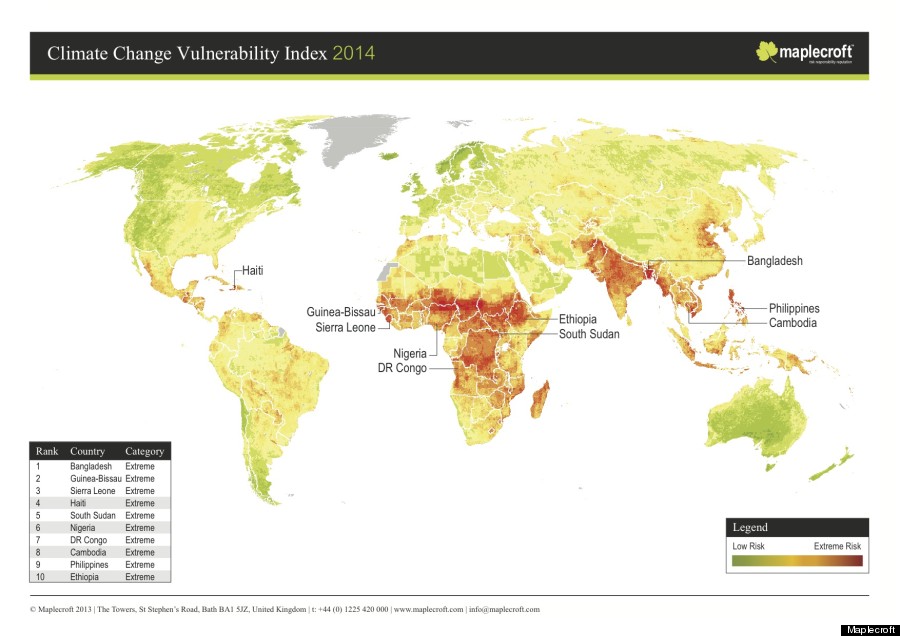"The link to climate change couldn't be clearer: not only do warmer temperatures extend the geographic range of the mosquito (up to half the world's population is now at risk), but Science Daily reports that global warming 'also reduces the size of Ae. aegypti's larva, and ultimately adult size. Since smaller adults must feed more frequently to develop their eggs, warmer temperatures would boost the incidence of double feeding and increase the chance of transmission.'"I don't know about you, but more mosquitos doesn't sound appealing. Toss in the chance of contracting a potentially lethal illness and this seems like it could become a massive problem. The first world isn't exempt from the spread of disease either as mosquitoes bite indiscriminately. This, mixed in with the decreasing effectiveness of antibiotics, certainly explains the white houses's public health approach to spreading climate change awareness. Below is a map prediciting the spread of west nile virus in The United States due to climate change (This is just one of many examples):
It seems clear that the health issues that almost exclusively plagued (no pun intended) the third world are becoming rather inclusive. We will see our national healthcare system put to the test as this issue is realized in the safe oasis that is the first world. Scientists believe that lethal viruses may be trapped in the permafrost of the north, and, as the permafrost melts, these illnesses will be reintroduced into society. This may be one of the most dangerous of all of the "positive feedback loops" that climate change will pose in the coming years.
Maybe this is just karma as the first world is largely to blame for climate change, yet sadly the third world is who will be the recipients of the worst of its effects as this map from the Huffington post shows:
Maybe this is just karma as the first world is largely to blame for climate change, yet sadly the third world is who will be the recipients of the worst of its effects as this map from the Huffington post shows:
Alas, climate change is not fair.





